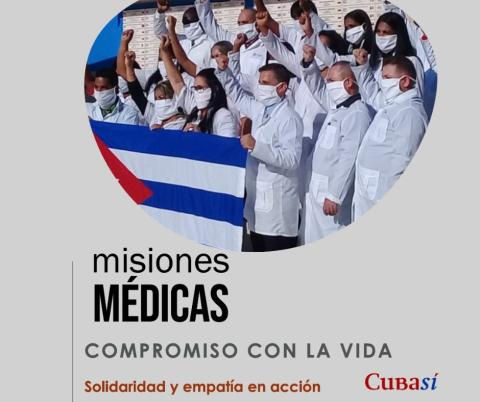62 years of Cuban medical collaboration
- The Left Chapter

- May 23, 2025
- 2 min read

Image via the PCC
By Lissel Pino Ceballos, translated from the Spanish
Cuban medical collaboration is one of the most significant expressions of international solidarity promoted by Cuba since the triumph of the Revolution in 1959. Its formal origin dates back to the first medical mission sent to Algeria, on May 23, 1963, when that country was experiencing a serious health crisis following its independence from France. At that time, Cuba sent a group of 55 health professionals: doctors, nurses, and technicians who worked under difficult conditions and laid the foundations for a cooperation model that would expand over the years to more than 160 countries on different continents.
Since then, medical collaboration has evolved and diversified, establishing health assistance programs that include primary care, the training of healthcare personnel, and responding to international emergencies. In the 1970s and 1980s, Cuba consolidated its presence in various regions of the world by sending medical brigades to Latin America, the Caribbean, Africa, and Asia to strengthen local health systems. Furthermore, with the creation of the Latin American School of Medicine in 1999, the country began training foreign doctors with the commitment that upon graduation, they would return to their communities of origin to care for vulnerable populations.

Over the past few decades, Cuban medical missions have played a crucial role in responding to humanitarian crises and natural disasters, such as assistance following Hurricane Mitch in Central America in 1998, fighting the Ebola epidemic in West Africa in 2014, and the mobilization of Henry Reeve brigades to confront the COVID-19 pandemic between 2020 and 2021. These groups of specialists have worked in hard-to-reach areas where healthcare infrastructure is limited, providing free medical care and contributing significantly to reducing mortality in affected populations.
The impact of this collaboration has been widely recognized by international organizations such as the World Health Organization and the United Nations, which have highlighted the medical care model implemented by Cuba as an example of selfless and effective cooperation in improving global public health. Furthermore, the presence of Cuban doctors has strengthened universal access to healthcare and enabled the implementation of preventative strategies in countries with deficient healthcare systems, ensuring care for communities that would otherwise have difficulty receiving medical services.
This work was translated and shared via a License CC-BY-NC







Comments